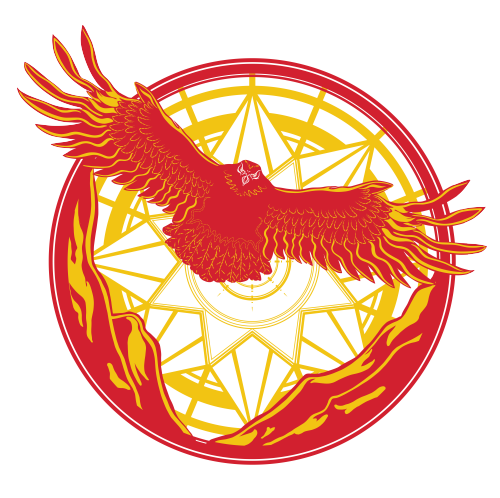By Michael Raymond Astle
One day, while roving the sprawling verdant greens of Signum University, Will spied a face he’d seen before. “Deanna,” said Will, as he took a seat upon the bench in his characteristic way, “what brings you here?” He smiled reminiscently.
“I’m planning on going into SPACE in a month or so,” she replied. “I’m wanting to learn more about languages to help my creative writing.”
“That’s a big step, Deanna! Perhaps you should visit the Fall SPACE Showcase to find out what SPACE is all about!” Will said. “What do you need to know about languages to write fiction for anyway?”
“Language is a source of identity,” Deanna replied. “In the process of worldbuilding, giving a fictional population its own dialect adds an extra layer of depth to who they are. Subtle shifts in how people speak alter the reader’s perception of them and thereby distinguish different groups within a story. Perhaps one society may seem old-fashioned or peaceful, while another is sophisticated or altruistic. I’d like to learn how to construct languages effectively to convey those ideas.”
“Okay. I see what you’re saying. But why construct a whole new language? Didn’t you already say using different dialects could do the job?”
“It’s not the same. By using a constructed language, or a conlang as we call them, it enriches the backstory. If everyone talks about the Balsheo Mountains, it raises the question of where that name came from. Was it borrowed from a previous indigenous people? If so, what does it mean? What happened to them? And why wasn’t the old name changed? Sprinkling our imagined worlds with vocabulary drawn from a conlang empowers an author to distinguish old from new, parochial from urbane, without having to state what’s what. It can show which levels of society have been most affected by past events or foreshadow where discontent is most likely to brew. I think it works especially well in speculative literature.”
“That term’s new to me. How do you define ‘speculative literature’?”
“Speculative literature covers all genres which depart from everyday reality, from science fiction and fantasy to Afrofuturism, dystopias and so on.”
“That’s pretty broad. How about, historical romance?” Deanna sensed Will might have been hinting at something but chose to answer his question at face value.
“Well, that may depend upon which angle you write it from. I’d say classical historical romance wouldn’t fit the bill but within the realm of alternate history there may be a place for it.”
“I think I prefer the theme of historical revival. After all, wouldn’t we all like to rekindle something that used to be? Who gets to decide how history is read anyway?”
“In SPACE, all modules are proposed and run by preceptors so they’re the ones who ultimately decide which lenses to explore material through. However, student interaction is encouraged as adults always bring their own lifetime of experiences to the table, enriching class discussions.”
“Creating writing is a broad field. If we’re going to be discussing our works in class, are there any topics which are off limits?”
“How do you mean ‘we’? Do you wish to accompany me on this journey?” The sunlight twinkled in her eyes, rousing an old memory in Will’s heart. “Because if you are,” she continued, “you should know that most workshop classes begin by establishing a baseline of acceptable topics. Usually, the group agrees to eschew gratuitous violence or the abuse of vulnerable populations within a scene, although such traumas may be alluded to by way of character background.”
“Doesn’t that restrict the kind of feedback you can give?”
“To an extent. But it’s up to each author to state whether their story is at the Seedling, Sapling, or Tree stage according to the Collaborative Feedback Method. Anyone who enrolls in a Creative Writing module is given a free copy of that book. Consequently, the kind of feedback anyone receives will be tailored to the level of support and inquiry their own writing project is ready for.”
“That’s a smart way of doing things. But what happens if someone raises a topic that makes you feel uncomfortable?”
“That depends on the kind of topic it is. Learning involves experiencing new ideas, yet no one wants a classmate to feel distressed. If it’s something a student knows ahead of time, such as if medical discussions make them feel queasy, they should tell the preceptor beforehand. That way, the preceptor can make suitable arrangements in advance. If a topic arises unexpectedly, one could respond in the moment or send a private chat message to the preceptor who will then move the conversation onto something else. In a worst case scenario, emailing the preceptor afterward in order to process a complex reaction is always appropriate. Speaking of discomfort, I’d like to be going now.”
“Was I something I said?” Will wondered.
“No. It’s those foreboding trumpets which just started playing for no apparent reason. Maybe we can meet up in SPACE another day.” With that, Deanna departed in haste.
Will also arose. He hadn’t walked more than a few steps when he ran into a black robed stranger. For a moment, he was taken aback. But the stranger was direct.
“I want to learn Gothic,” came a voice through a mask.
“What would you want to do that for?” Will responded. “Nobody’s spoken that for centuries.”
“Number One,” the mysterious voice answered as though it knew something more of Will than he knew of it, “Gothic suits my image. It makes me look cool. Then there are the cognitive benefits. Anyone can forge a strong mind by learning a new language. But most importantly, historic languages connect us with the stories of people unlike us, whose ideas we have yet to assimilate. Furthermore, by diving deeper into old tales, we can garner greater knowledge of our ancestors, those whose worlds are simultaneously both familiar and unfamiliar.”
“You have a point there. Thinking about it, you know learning a dead language could also help you master a host of related languages. That’s why back in the pre-contact days they taught Latin in schools. It gave students who wanted to learn Italian, French or Spanish later in life a head start. Not to mention all the historical texts written in it. Being able to read the original texts without the intervention of a translator would sure deepen your understanding.”

“My son Luke wants to learn about language construction,” the masked figure interjected.
“You mean conlanging? He could try going into SPACE if he’s over 18. If not, you might have better luck on the Signum Academy web page and encouraging its re-naissance!”
“He would prefer a course where Spanish is the language of instruction.”
“You’re out of luck on that one, sorry. For now, English is the only language of instruction for SPACE courses.”
“Tell me, how many people are in SPACE at any given moment?”
“Let me think. Counting everyone, eighteen or so modules with four to twelve students in each comes out to about a hundred students and faculty each month.”
“I want to teach the Mysteries of the Force.”
“Strike 2!” Will coolly tilted his head down and back. “That one’s already taken, sorry. But if you’re interested in becoming a preceptor, write to [email protected] with a description of what you’d like to teach and they’ll send you some forms to fill out. Any adult is welcome to make a formal module proposal if they have the necessary skills and background to run a class.”
“Is it possible to request a new class on a topic not yet taught?”
“Sure. In fact, there are threads in the Signum Discord for discussing exactly that. Email [email protected] with your Discord handle and they’ll send you an invitation to the Signum Discord server and the SPACE channels within that server.”
“Excellent.” The robed figure turned to go.
“Wait a minute,” Will called. “I didn’t catch your name.”
“You can call me, Annie,” the voice replied, and walked away.
Will stood thinking for a moment. “There’s always something mysterious about black,” he said to himself. “A black sky, Blackberry, a black dress. But somehow, I still prefer the look of a purple jumpsuit. Maybe I should return to SPACE after all.”
Moments later, Annie beamed up to a cube.

